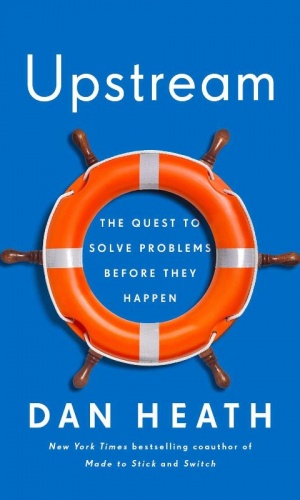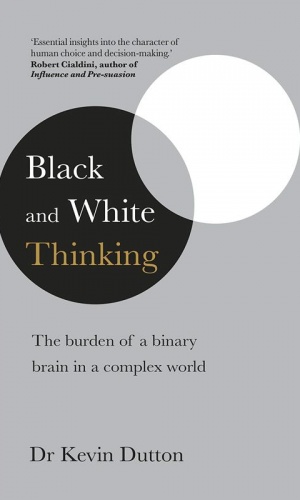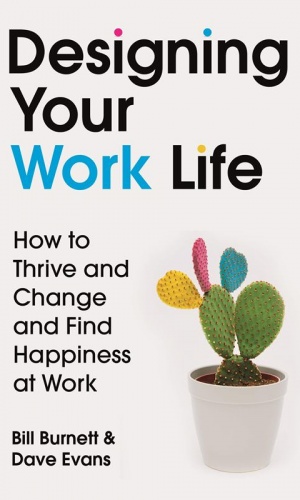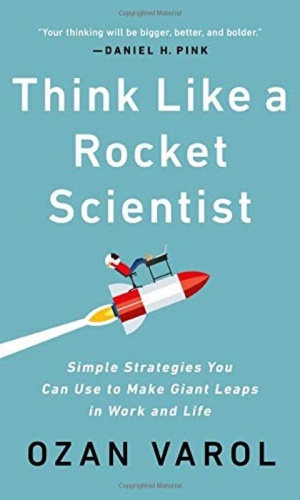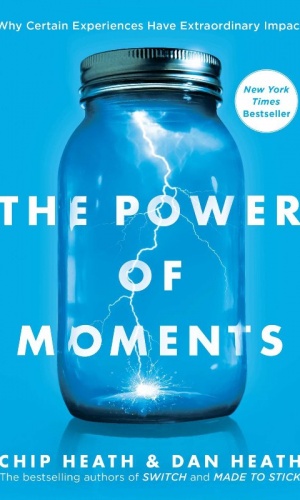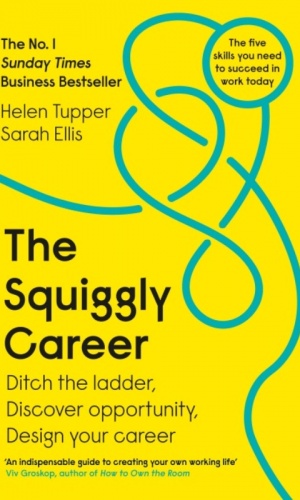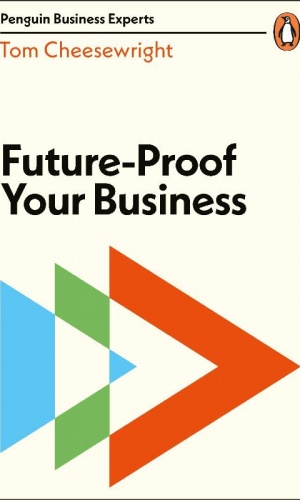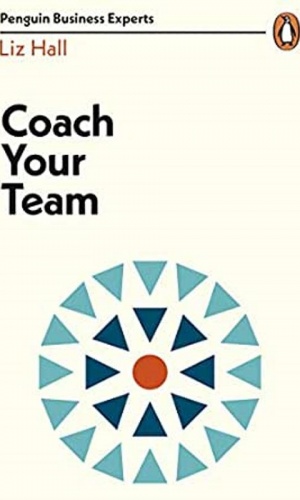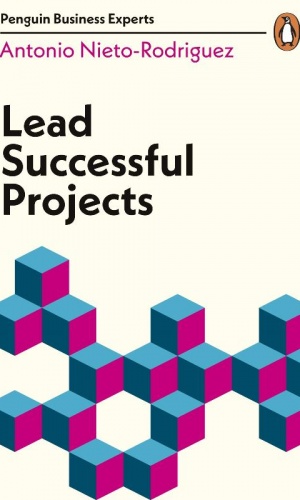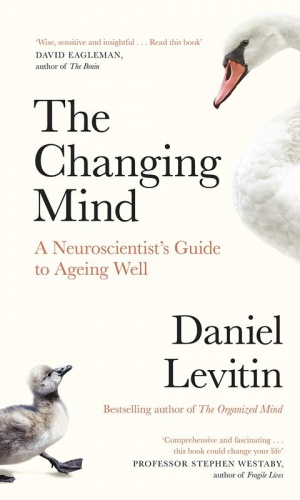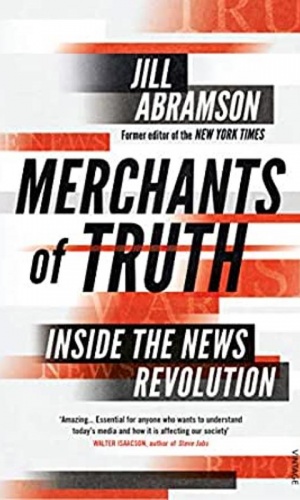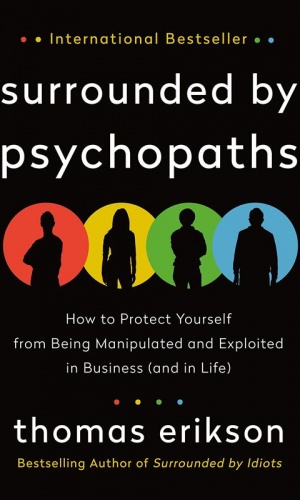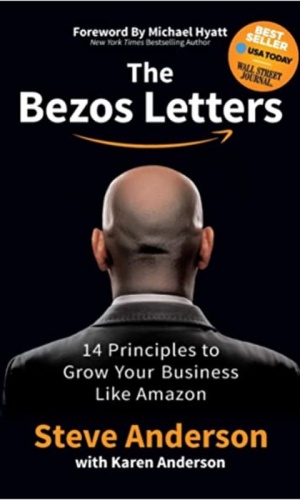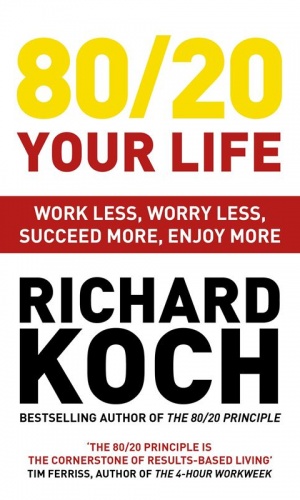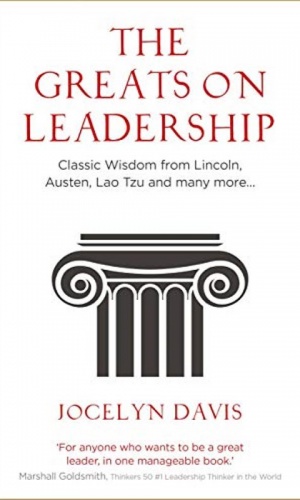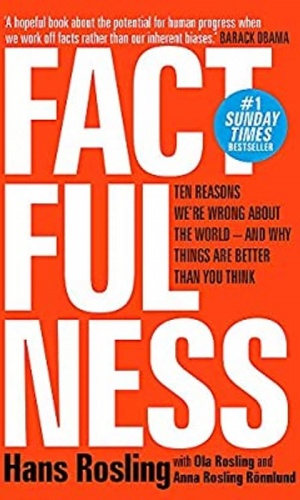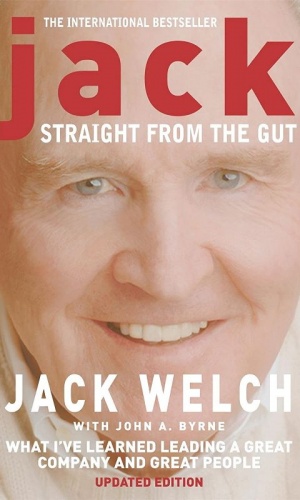-
Upstream
So often in life, we get stuck in a cycle of response. We put out fires. We deal with emergencies. We stay downstream, handling one problem after another, but we never make our way upstream to fix the systems that caused the problems. Cops chase robbers, doctors treat patients with chronic illnesses, and call-center reps address customer complaints. But many crimes, chronic illnesses, and customer complaints are preventable. So why do our efforts skew so heavily toward reaction rather than prevention?
Upstream probes the psychological forces that push us downstream—including “problem blindness,” which can leave us oblivious to serious problems in our midst. And Heath introduces us to the thinkers who have overcome these obstacles and scored massive victories by switching to an upstream mindset. One online travel website prevented twenty million customer service calls every year by making some simple tweaks to its booking system. A major urban school district cut its dropout rate in half after it figured out that it could predict which students would drop out—as early as the ninth grade. A European nation almost eliminated teenage alcohol and drug abuse by deliberately changing the nation’s culture.
₦6,500 -
BLACK AND WHITE THINKING
Several million years ago, natural selection equipped us with binary, black-and-white brains. Though the world was arguably simpler back then, it was in many ways much more dangerous. Not coincidentally, the binary brain was highly adept at detecting risk: the ability to analyze threats and respond to changes in the sensory environment—a drop in temperature, the crack of a branch—was essential to our survival as a species.
Since then, the world has evolved—but we, for the most part, haven’t. Confronted with a panoply of shades of gray, our brains have a tendency to “force quit:” to sort the things we see, hear, and experience into manageable but simplistic categories. We stereotype, pigeon-hole, and, above all, draw lines where in reality there are none. In our modern, interconnected world, it might seem like we are ill-equipped to deal with the challenges we face—that living with a binary brain is like trying to navigate a teeming city center with a map that shows only highways.
In Black-and-White Thinking, the renowned psychologist Kevin Dutton pulls back the curtains of the mind to reveal a new way of thinking about a problem as old as humanity itself. While our instinct for categorization often leads us astray, encouraging polarization, rigid thinking, and sometimes outright denialism, it is an essential component of the mental machinery we use to make sense of the world. Simply put, unless we perceived our environment as a chessboard, our brains wouldn’t be able to play the game.
Using the latest advances in psychology, neuroscience, and evolutionary biology, Dutton shows how we can optimize our tendency to categorize and fine-tune our minds to avoid the pitfalls of too little, and too much, complexity. He reveals the enduring importance of three “super categories”—fight or flight, us versus them, and right or wrong—and argues that they remain essential to not only convincing others to change their minds but to changing the world for the better.
₦6,500 -
Designing Your Work Life
DESIGNING YOUR WORK LIFE teaches readers how to create the job they want—without necessarily leaving the job they already have.
“Increasingly, it’s up to workers to define their own happiness and success in this ever-moving landscape,” they write, and chapter by chapter, they demonstrate how to build positive change, wherever you are in your career.
₦9,000 -
Think Like a Rocket Scientist
A former rocket scientist reveals the habits, ideas, and strategies that will empower you to turn the seemingly impossible into the possible.
Rocket science is often celebrated as the ultimate triumph of technology. But it’s not. Rather, it’s the apex of a certain thought process — a way to imagine the unimaginable and solve the unsolvable. It’s the same thought process that enabled Neil Armstrong to take his giant leap for mankind, that allows spacecraft to travel millions of miles through outer space and land on a precise spot, and that brings us closer to colonizing other planets.
Fortunately, you don’t have to be a rocket scientist to think like one.
₦7,800 -
The Power of Moments
While human lives are endlessly variable, our most memorable positive moments are dominated by four elements: elevation, insight, pride, and connection. If we embrace these elements, we can conjure more moments that matter. What if a teacher could design a lesson that he knew his students would remember twenty years later? What if a manager knew how to create an experience that would delight customers? What if you had a better sense of how to create memories that matter for your children?
This book delves into some fascinating mysteries of experience: Why we tend to remember the best or worst moment of an experience, as well as the last moment, and forget the rest. Why “we feel most comfortable when things are certain, but we feel most alive when they’re not.” And why our most cherished memories are clustered into a brief period during our youth.
Readers discover how brief experiences can change lives, such as the experiment in which two strangers meet in a room, and forty-five minutes later, they leave as best friends. (What happens in that time?) Or the tale of the world’s youngest female billionaire, who credits her resilience to something her father asked the family at the dinner table. (What was that simple question?)
₦4,900 -
The Squiggly Career
Careers are changing; they are no longer linear and there’s no such thing as a ‘job for life’. Squiggly careers, where people jump constantly between roles, industries and locations, are becoming the new normal.
Squiggly careers are filled with opportunity and excitement, but they can also be ambiguous and overwhelming if we don’t know how to make the most of them.
In The Squiggly Career, personal development experts Helen Tupper and Sarah Ellis reveal 5 skills you need to master and teach you how to:
· Identify your Values
· Play to your Super Strengths
· Address your Confidence gremlins
· Design your support solar systems (Networks)
· Explore your Future PossibilitiesPacked with insights about the changing-face of work, exercises to aid your growth, and tips and inspiration from highly successful people, this book will help you be happier, and ultimately more successful in your career.
₦9,500 -
PENGUIN BUSINESS EXPERTS- SPEAKING WITH CONFIDENCE
In Future-Proof Your Business, applied futurist Tom Cheesewright will reveal industry techniques and tools to help you:
₦7,900 -
THE FREELANCE BIBLE
You want to go freelance. You want to make your career work for you, on your terms and determined by your own definition of success. You want autonomy, flexibility and variety.
But where do you start?
In The Freelance Bible, award-winning entrepreneur and freelancer, Alison Grade, guides you through absolutely everything that you need to know to start your successful self-employed life.
₦7,800 -
PENGUIN BUSINESS EXPERTS- COACH YOUR TEAM
It has never been a more challenging time for managers and leaders to maintain a happy, healthy workforce. The pace of change and increasing uncertainty in most industries has resulted in a rapid increase in stress and anxiety in the workplace, and most organizations are poorly equipped to respond to these challenges in a meaningful and supportive way.
₦5,400 -
PENGUIN BUSINES EXPERTS- LEAD SUCCESSFUL PROJECTS
Are you struggling to juggle multiple projects? Do you often lose control of your budget? Does communicating your progress to the rest of your team cause you undue stress?
₦5,400 -
EVERYTHING IS FIGUREOUTABLE
From the host of the award-winning MarieTV and The Marie Forleo Podcast, an indispensable handbook for becoming the creative force of your own life.
While most self-help books offer quick fixes, Everything is Figureoutable will retrain your brain to think more creatively and positively in the face of setbacks. In the words of Cheryl Strayed, it’s “a must-read for anyone who wants to face their fears, fulfill their dreams, and find a better way forward.”
₦10,600 -
The Big Short
There’s no such thing as a ‘free’ market
Globalization isn’t making the world richer
We don’t live in a digital world – the washing machine has changed lives more than the internet
Poor countries are more entrepreneurial than rich ones
Higher paid managers don’t produce better resultsWe don’t have to accept things as they are any longer. Ha-Joon Chang is here to show us there’s a better way.
From the author of The Blind Side and Moneyball, The Big Short tells the story of four outsiders in the world of high-finance who predict the credit and housing bubble collapse before anyone else. The film adaptation by Adam McKay (Anchorman I and II, The Other Guys) features Academy Award® winners Christian Bale, Brad Pitt, Melissa Leo and Marisa Tomei; Academy Award® nominees Steve Carell and Ryan Gosling.
₦4,600 -
The Changing Mind
What if the best was yet to come? Recent studies show that our happiness levels peak at age 82, and that our decision-making skills improve as we age. As more of us live past the age of 80, in this ground-breaking book, Dr Daniel Levitin uses cutting-edge research from neuroscience and psychology to demonstrate the benefits of getting older.
Packed with engaging interviews with individuals who thrived far beyond the conventional age of retirement, this book also reflects on challenges many readers will recognize. Levitin offers a realistic personal plan full of practical, cognitive enhancing tricks for everyone to follow over the years.
₦6,600 -
Merchants of Truth
The last decade has seen the News industry face unprecedented change. The sometimes-century old institutions which were once the bastions of truth have had their dominance eroded by vast innovations in viral technology and, as millennial appetites force the industry to choose between principles of objectivity and impartiality, the survivors must confront the horrifying cost of their success: sexual scandal, fake news, the election of President Trump and the shaking of democracy.
₦6,200 -
How To Write It
This book is a masterclass in the craft of writing and poetry from one of Britain’s most celebrated poets and educators, T.S. Eliot Prize nominee Anthony Anaxagorou.
Taking readers on a personal journey through his early life and school years, through to his relationship with literature, education poetry and writing, this book is filled with tips, anecdotes and publishing advice for anyone interested in getting their work seen. From Anthony’s first slam win to the evolving British poetry scene, this book will provoke readers into thinking about their writing more carefully – be it a poem, short story or novel – and help them finally get their book out into the world.
This book is essential reading for taking your work to the next level, and is introduced with an inspirational foreword by Sunday Times bestselling author, Candice Carty-Williams.
_______________________________________________________
Designed to inspire and encourage readers to unlock their potential and provoke change, the How To series offers a new model in publishing, helping to break down knowledge barriers and uplift the next generation.₦4,500 -
How To Change It
Is it possible to create real change? How can we as individuals help to solve some of the biggest issues of today? How can we overcome injustice and inequality wherever we are? Where does power sit, and how can we get it?
₦4,500 -
How to Build It
In a world where everyone is trying to monetise their side hustle and the five-to-nine is as valuable as the nine-to-five, building your brand is a necessity. But how can you work out what your brand is? How can you make it relevant, and how can you give it real longevity?
This indispensable, step-by-step guide will help you understand all the key considerations as you build solid foundations for your brand to thrive and grow. Complete with creative tasks and shared personal insight from two creative strategists who have worked with some of the world’s most renowned brands, How to Build It will set you on the road from nowhere to everywhere.
Introducing the new How To series from #Merky Books: unlock your potential with our short, practical guides.
Designed to inspire and encourage listeners to unlock their potential and provoke change, the How To series offers a new model in publishing, helping to break down knowledge barriers and uplift the next generation.
₦4,500 -
Another Now
Imagine if Occupy and Extinction Rebellion actually won.
In Another Now world-famous economist Yanis Varoufakis shows us what such a world would look like. Far from being a fantasy, he describes how it could have come about – and might yet. But would we really want it?
₦7,800 -
Surrounded by Psychopaths
Charming, charismatic, and delightful or manipulative, self-serving, and cunning? Psychopaths are both and that’s exactly what makes them dangerous. Bestselling author of the international phenomenon Surrounded by Idiots, Thomas Erikson reveals how to identify the psychopaths in your life and combat their efforts to control and manipulate.
Using the same simple four-color system of behavior classification that made Surrounded by Idiots so popular, Surrounded by Psychopaths teaches readers how to deal with psychopaths in their lives by becoming aware of their own behavior and their weaknesses. Vivid example stories illustrate ways that psychopaths can take advantage of various behavior types, helping readers identify their own weaknesses and be proactive about protecting themselves. Erikson outlines some of the most common forms of manipulation used by psychopaths―and others―to influence those around them. Since manipulation can often be a feature of ordinary, non-psychopathic relationships, the book also includes practical methods and techniques to help readers confront controlling people and rehabilitate negative relationships into mutually respectful ones.
₦5,700 -
The Bezos Letters
Amazon is the fastest company ever to reach $100 billion in sales and they didn’t reach that landmark by staying in their comfort zone. Risk taking is the key that unlocked the door to growth at Amazon, but those risks were (and are) intentional, calculated, and strategic. Thomas Edison believed, “I have not failed. I’ve just found 10,000 ways that won’t work.” and Amazon’s founder, Jeff Bezos, has always linked experimentation and failure with growth and success.
But “risk taking” can be costly (even disastrous) if you don’t know how to use it to your advantage. Fortunately, Bezos has provided every business owner a “hidden in plain sight” roadmap for how he grew Amazon through his Letter to Shareholders (or as he named them, share owners) that he has written annually for the past 20 years.
For the first time, Technology and Risk expert Steve Anderson has analyzed and distilled these letters to reveal the key 14 Growth Principles that unlock the lessons, mindset, and steps Bezos has used to make Amazon the massive success it is today.
₦7,400 -
80/20 YOUR LIFE
80/20 YOUR LIFE shows how working out the few things that are really important, and the few methods that will give you those things, leads to increased happiness and greater success. When you read this book, you’ll discover why ‘less is more’ isn’t just a saying, but a sure-fire method to achieve your goals and live your best life.
₦6,700 -
THE GREATS ON LEADERSHIP
You don’t need a big title or a business degree in order to lead with impact. What you need is practical wisdom: the insight, judgment, and strength of character that all great leaders have, but that most business schools and corporate workshops don’t teach. The Greats on Leadership gets you there.
Jocelyn Davis takes you on an in-depth tour of the best leadership ideas of the past 25 centuries, featuring classic authors from Plato to Winston Churchill, Shakespeare to Jane Austen, C.G. Jung to Peter Drucker, and many more. In a style both thought provoking and entertaining, she shows how -history’s great writers have always been, and still are, the real leadership gurus.
Davis spells out the behaviors that distinguish true leaders from misleaders and covers 20 specific leadership topics, including:
Leadership Traps (Shakespeare)
Change (Machiavelli)
Power (Sophocles)
Dilemmas (Madison, Hamilton)
Communication (Lincoln, Pericles)
Personality Types (Jung)
Motivation (Frankl)
Judgment (Maupassant, Melville, Austen, Shaw)
Character (Churchill, Plutarch, Shelley, Joyce)Each chapter begins with a synopsis of a great work by the author and then draws out the key leadership insights, weaving them together with business examples, the best contemporary research, and tools to help put it all into practice. In the last two chapters Davis presents a new way to think about leadership levels, framing them in terms of the impact you have rather than the title on your business card.
₦5,700 -
FACTFULNESS
When asked simple questions about global trends―what percentage of the world’s population live in poverty; why the world’s population is increasing; how many girls finish school―we systematically get the answers wrong. So wrong that a chimpanzee choosing answers at random will consistently outguess teachers, journalists, Nobel laureates, and investment bankers.
In Factfulness, Professor of International Health and global TED phenomenon Hans Rosling, together with his two long-time collaborators, Anna and Ola, offers a radical new explanation of why this happens. They reveal the ten instincts that distort our perspective―from our tendency to divide the world into two camps (usually some version of us and them) to the way we consume media (where fear rules) to how we perceive progress (believing that most things are getting worse).
₦4,700 -
Jack: Straight from the Gut
Nearly 20 years ago, former General Electric CEO Reg Jones walked into Jack Welch’s office and wrapped him in a bear hug. “Congratulations, Mr. Chairman,” said Reg. It was a defining moment for American business. So begins the story of a self-made man and a self-described rebel who thrived in one of the most volatile and economically robust eras in U.S. history, while managing to maintain a unique leadership style.
₦5,000

